WHAT THE SCOTS HAVE GIVEN THE WORLD
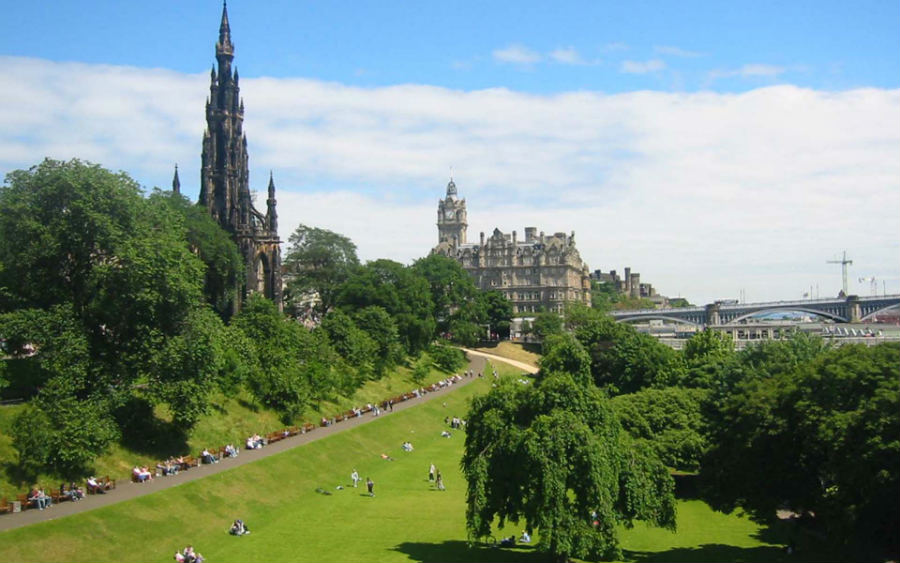
Introduction
For a country with only five million inhabitants and of such a modest size, Scotland has had a monumental influence on the world. Some of the most famous people in history in the fields of the arts, literature, science, medicine and engineering have come from Scotland or have Scottish roots.
It is safe to say the world would be a far more mundane place if it were not for the contributions of great Scots over the years. Inventions such as the telephone, the steam engine, tarmac, the rotary lawnmower, radar and television are all down to Scottish determination and Scottish ingenuity.
And more recently, the Roslin Institute on the outskirts of Edinburgh astonished the scientific community in 1996 by producing the world’s first cloned sheep, Dolly. Meanwhile, the National E-Science Centre, a joint project between the Universities of Glasgow and Edinburgh, is at the forefront of research into a successor to the Internet, which will provide turbo-charged access to information. Scotland’s IndigoVision has also just unveiled the technology allowing high-quality video on demand on any hand held mobile device.
Taking industry to the world - Scotland’s engineering heritage
Scotland’s mark on the globe has been made as much by its engineers as by its thinkers and inventors. Indeed, the engineer remains as synonymous with Scotland as haggis or whisky. Central to the industrial expansion of the major economic powers in the 19th century were Scottish iron and Scottish coal. Shipbuilding was crucial to the export of these vital commodities, which were carried around the world in Scottish ships, built by Scots and owned by Scots. The greatest Victorian shipping lines such as Cunard, P&O and British India all had Scottish origins.
Earlier, Glasgow University ‘mathematical instrument maker’ James Watt was charged with developing the steam engine into a practical source of power. He also invented the governor as a control device. In addition, the first standard eight-coupled heavy freight engine in Europe was produced by Scotsman John Haswell. Without Haswell’s innovation, the railways would not have been able to handle the volume of freight and military traffic on which the major powers of the world depended.
Road builder and surveyor John McAdam developed the process of Macadamisation, which involves covering a road with small broken stones to form a hard surface. This led to tarmacadam, or tarmac, which is still used to cover roads all over the world today.
Later, entrepreneur Sir Robert McAlpine pioneered the use of concrete and machinery in the construction industry and went on to be responsible for some of the country’s most distinctive public buildings, such as Wembley Stadium in London.


Smart thinking – great Scots inventors
Winston Churchill once said: “Of all the small nations on earth, perhaps only the ancient Greeks surpass the Scots in their contribution to mankind.” If one takes even a quick glance at the inventions Scotland has gifted to the world, one would be inclined to agree with him.
Engineer and inventor John Logie Baird was the father of television and later developed ideas such as colour, 3D and large screen TV. He was also the first to patent fibre-optics, the technology now used to carry telephone calls and Internet traffic. It was, of course, Edinburgh-born Alexander Graham Bell who invented the device in 1876.
Later, Brechin-born Sir Robert Alexander Watson-Watt was the physicist who developed and introduced Radar during World War II.
Less celebrated, but just as influential are Scots figures such as Dundee’s James Chalmers who invented the adhesive postage stamp; Sir James Dewar, who created the vacuum flask, and Robert William Thomson who invented the vulcanised rubber pneumatic tyre in 1845, the fountain pen in 1849 and a steam traction engine in 1867. Unfortunately, he abandoned his idea for the pneumatic tyre over fears it would be too expensive to produce, and it was only rescued in 1888 by his fellow countryman John Boyd Dunlop. A similar fate befell the unfortunate Kirkpatrick Macmillan, who first invented the bicycle. However, he failed to patent his invention and it was widely copied.
Switched on Scotland - medicine and science
Voltaire once proclaimed: “We look to Scotland for all our ideas of civilization.” Never has this been truer than in the fields of medicine and science. Without the breakthroughs achieved by Scots pioneers, civilization would not be what it is today. Among the most celebrated is Sir Alexander Fleming, who discovered the world’s first antibiotic drug – penicillin? Surgeon James Braid was a pioneer in the field of hypnosis and was the first to use the term neurohypnosis. Another groundbreaking inventor was James Gregory, who invented the reflecting telescope, developed later by Englishman Sir Isaac Newton.
Sir William Ramsay from Glasgow was the man responsible for the discovery of rare gasses such as helium, argon, neon, krypton and xenon, and was also one of the first people to work with radioactivity.
Scots have also introduced anaesthesia, antiseptic surgery, insulin, the scanner and the bone graft to the world. More recently, it was the team from Edinburgh’s Rosslyn Institute who cloned Dolly the sheep.
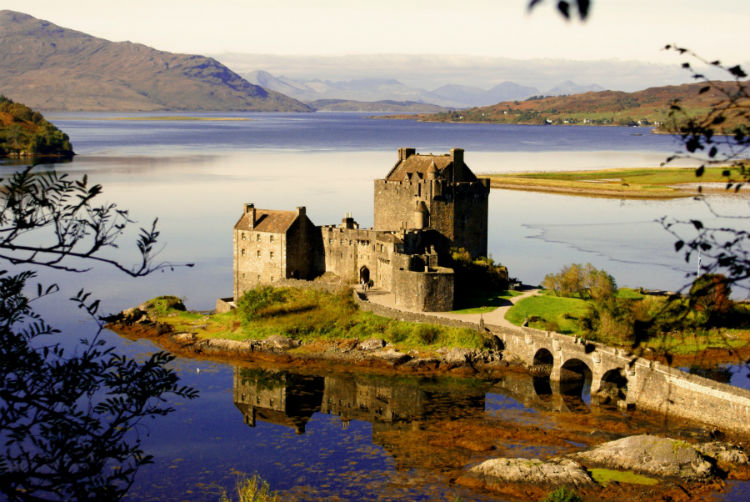
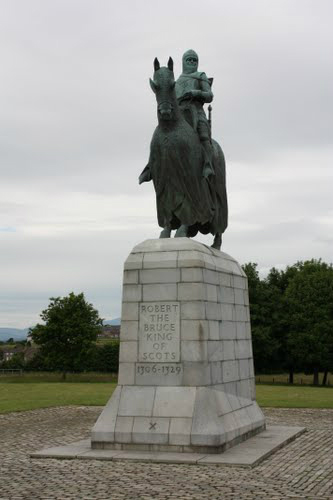
Business pioneers - trade and finance
Famously, Scotland was the first country in the world to use the banknote. Since then, Scotland has continued to take the lead in many fields of commerce. The country is home to one of the world’s oldest banks, The Bank of Scotland, which was established in 1695.
One of the world’s greatest business tycoons and philanthropists was Andrew Carnegie. Born in Dunfermline in 1835, Carnegie’s name is now indelibly linked with philanthropy and generosity. His family moved to the USA in 1848 and Carnegie entered the steel industry in 1865. Less than 40 years later, he sold his interests to the US Steel Corporation for $250 million, making him the richest man in the world. He gave away much of his fortune to a variety of good causes: to date, his trusts have given over $300 million to good causes.
Born in Glasgow in 1874, Harry McGowan persuaded a group of chemical manufacturing magnates to set up Imperial Chemical Industries, now more commonly known as ICI.
Meanwhile, Sir Thomas Lipton is credited with revolutionising the retail grocery trade, buying, for example, tea plantations in Sri Lanka. He developed many of the marketing techniques employed by supermarkets today, and also, additionally, established the World Cup for soccer in 1910.
Jardine and Mathieson, established by two Scots in 1832, was the first foreign trading house in Japan and is now a vast commercial empire encompassing financial services, supermarkets, engineering, consumer marketing, construction, motor trading, property and hotels, with offices across Asia, the UK, Australia and the USA.
Scots economist Adam Smith is now known as the father of political economy and his book, Inquiry into the Nature and Causes of the Wealth of Nations, is one of the key texts in the history of economic thinking.
Today, the country boasts the sixth largest financial industry in Europe in terms of funds managed, due to the powerful financial services sector based in Edinburgh. The automated teller machine (ATM) was also developed in Scotland and the country now exports 85% of Europe’s ATMs.
While machinery, manufacturing and, of course, whisky, still play important parts in Scotland’s export market, electronics is now the country’s biggest manufacturing industry, with 28% of Europe’s personal computers and silicon microchips produced in Scotland.
The big picture – Scots in the arts
Scots contributions to the worlds of music, art, literature, film, theatre and architecture are famed across the globe. Sean Connery, Billy Connolly, Ewan McGregor and David Niven are famous around the world as some of cinema and television’s biggest stars, while music hall entertainer Sir Harry Lauder, more than anyone else, was responsible for the image of Scots as kilt-wearing, whisky drinking and careful with money.
Robert Burns is regarded as one of history’s greatest poets and, among other works, penned Auld Lang Syne, which is now sung around the world at the end of parties, functions and especially on New Year’s Eve. Other remarkable Scots writers include Sir James (JM) Barrie, who created Peter Pan, Kenneth Graham, author of The Wind In the Willows, and Sir Walter Scott, whose Waverley novels and other works did much to identify and nurture the Scottish cultural identity.
Elsewhere, Charles Rennie Mackintosh, whose unique style combining art nouveu and Scottish Celtic traditionalism, is one of the world’s most influential and respected architects and designers.
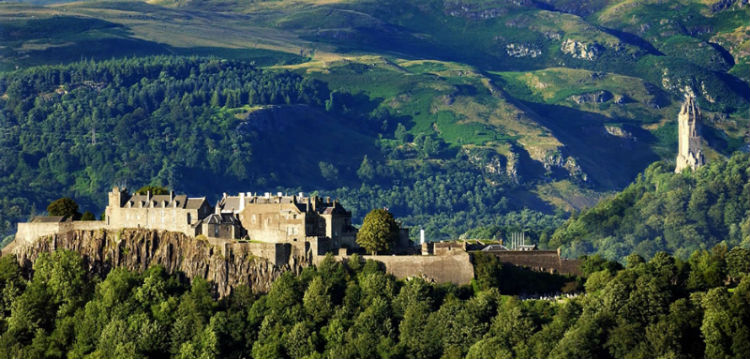
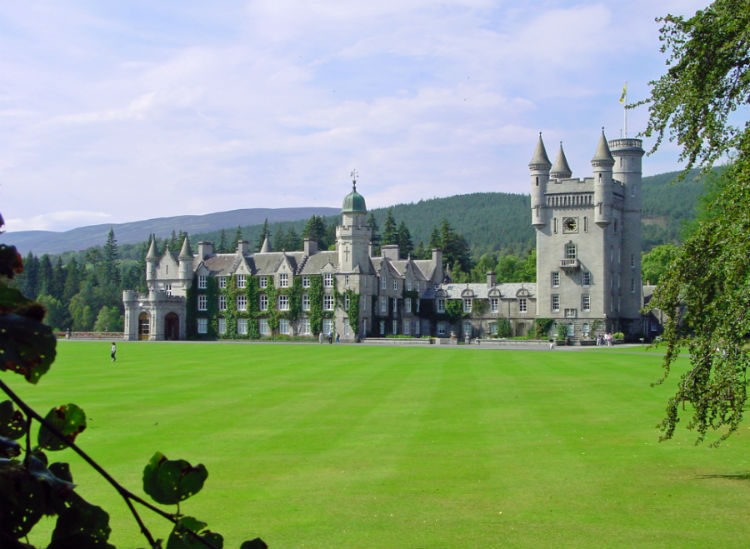
Scots abroad - a world-wide influence
Scots have emigrated all over the world. During the second half of the 19th century, one third of all colonial governors were Scottish. It’s hardly surprising, therefore, that over five million Americans now claim Scottish origin – among them famous names such as the first man on the moon Neil Armstrong, Donald Trump, Shirley MacLaine and Bill Clinton. Elvis Presley’s family roots have been traced to Paisley in the west of Scotland.
Going back further, nine of the thirteen Governors of the founding U.S. states were of Scottish ancestry; as was every member of George Washington’s Cabinet. To date, thirteen US Presidents have had Scottish ancestry.
Missionary Dr David Livingstone is Scotland’s most celebrated explorer and is credited with discovering, amongst others, the Victoria Falls, the Zambesi and other uncharted expanses of Africa. He also played an important role in Britain outlawing slavery.
However, perhaps the last word on the achievements of Scots should go to an Englishman Edward Topham, who commented:
“Go into whatever country you will and you will always find a Scotsman. They penetrate into every climate, you meet them in all the various departments of travellers, soldiers, merchants, adventurers, and domestics. Consult the history of their own nation from the earliest period, and that of other nations, and you will find that if any dangerous and difficult enterprise has been undertaken, any new countries visited and improved, that a Scotchman has borne some share in the performance."
